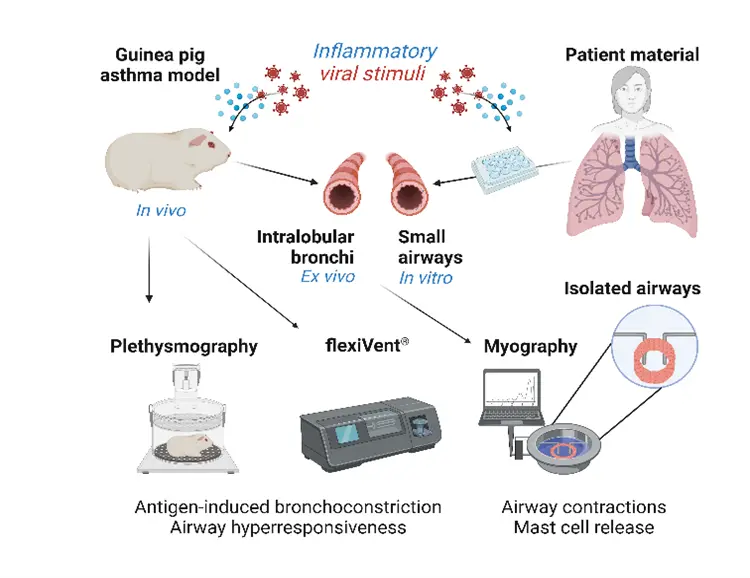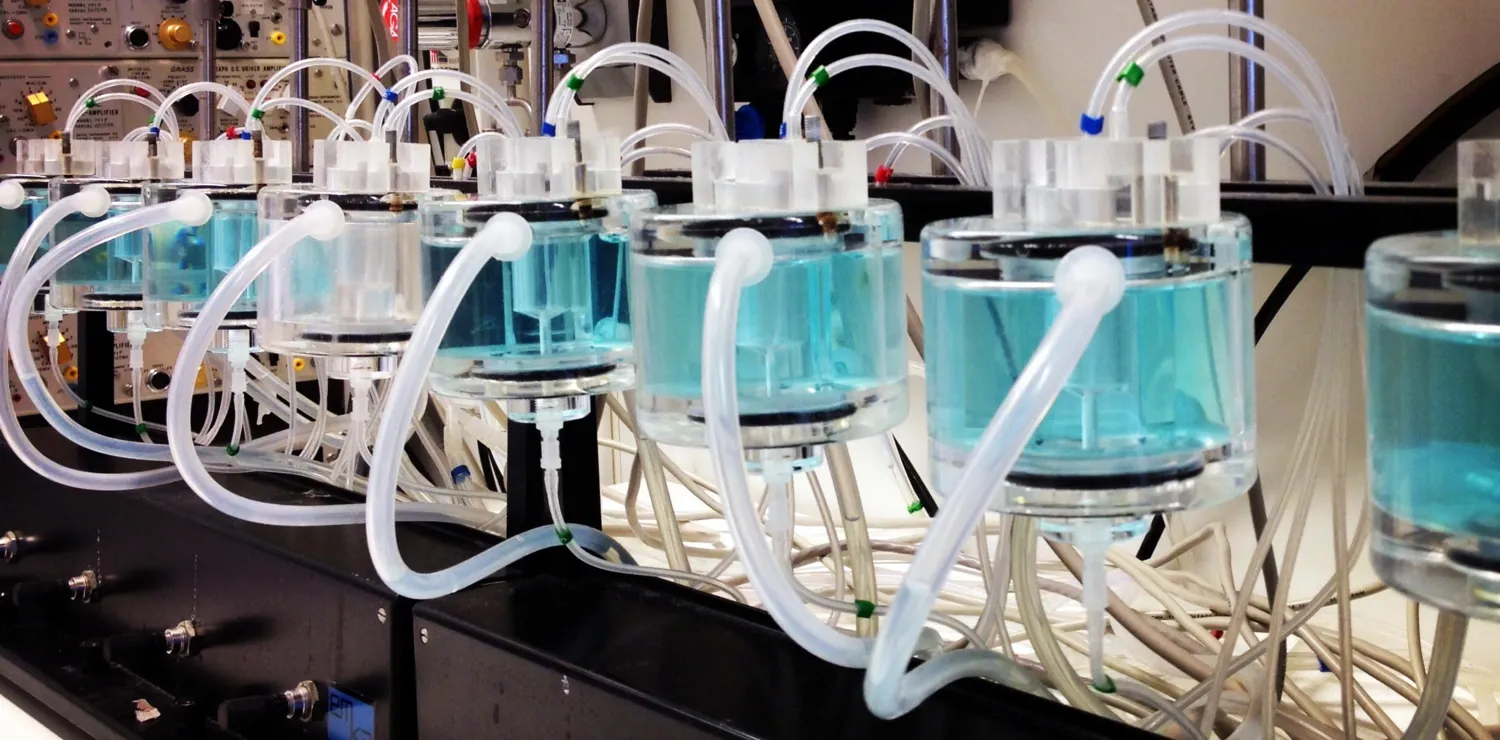The research is based on a foundation of physiology and pharmacology to study inflammatory and immunological reactions at the molecular level. Since it is not possible to directly study mechanisms in humans, it is necessary to use other methods to make this possible. Therefore, we have developed several completely unique methods. These are based on a guinea pig model of asthma as well as the use of isolated human bronchi. The guinea pig model allows for the study of asthma in vivo from a systemic perspective and with intact lung physiological responses. The human bronchi make it possible to study individual pharmacological and molecular biological processes in vitro, which we now also have the opportunity to do in isolated bronchi from the guinea pig asthma model ex vivo.

The inability to study asthma in vivo in asthmatics should be compensated by guinea pig studies, and then translation studies using human bronchi to verify reactions in humans. The aim is that with the help of the three approaches— in vivo, ex vivo, and in vitro — knowledge can be reciprocally exchanged, leading to new possibilities for treating asthma.

